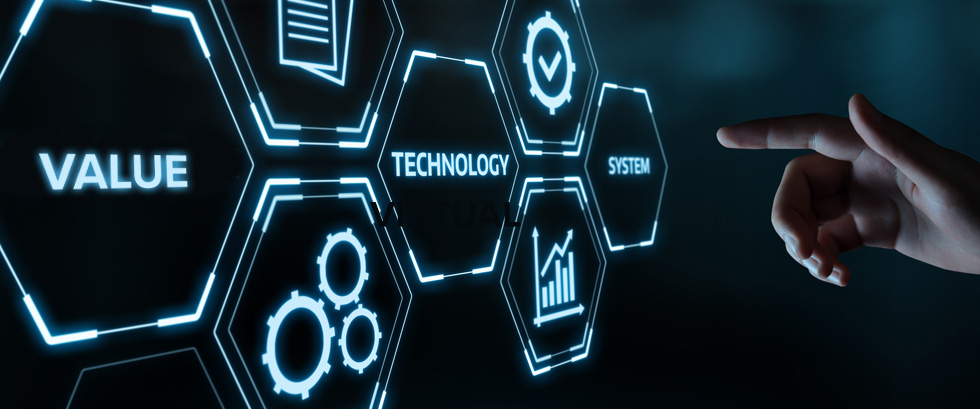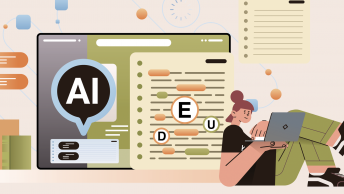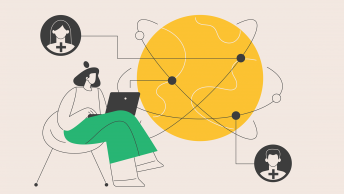This is a subsequent article of the series: Are we going Meta? Where I’m trying to answer the question: Is it possible for us in the future to stay (or at least use) metaverse on daily basis?
Before we will move on I wanted to make a remark on something important which is strongly connected to this topic… When I started to write this series we lived in a different reality. There was no war in Europe. When I got back to continue it I had a conclusion that it is impacting also our perception of value. Something which you thought was an absolute must-have can be obsolete when the conditions you live in are changing. Poor Ukrainian people now are dying without water and food in occupied and shelled without mercy cities. Their needs are basic now. They are trying to survive this horrible terror Putin and the Russian army cast upon them. They need to be safe and got food and water. Only several weeks ago they were living perfectly normal and comfortable lives (at least most of them). And their needs and perception of value were different.
And now, before we continue I feel obliged to make a remark that Putin made horrifying crimes by invading Ukraine and making millions suffer. This cannot be forgotten, muted or twisted by the Russian propaganda. The fact is that beginning of the 21st century is a very bitter test of the reality we live in. Surrounded by technology and comfort we forgot how tangible is the risk of another war and human suffering… In the eyes of the whole world, the Russian army is making their bestial acts: killing civilians, raping women, stealing and threatening the independence of another country.
And some of the countries still value their economies over the fact that millions are escaping the country, and thousands are dying (including small children). A bitter remark from my side is that in the article on perception of the value we should consider – what is really valuable for us as humans and think about it on a longer horizon as a species and as a civilisation…
To get back more to the topic let us think about it from a higher level.
There is a triangle of related components which we need to be discussed in this post. Three topics that are tight together and which are inseparable:
1. Perception of value,
2. Needs,
3. and Consumption.
If we have a need, and our perception of the value of the object /service matches our expectations we make a purchase (consumption). Of course, this is simplified but for the sake of this article let’s simplify it.
Also, I will solely focus on material/virtual goods. Since the topic of value is too broad and too philosophical to be discussed here.
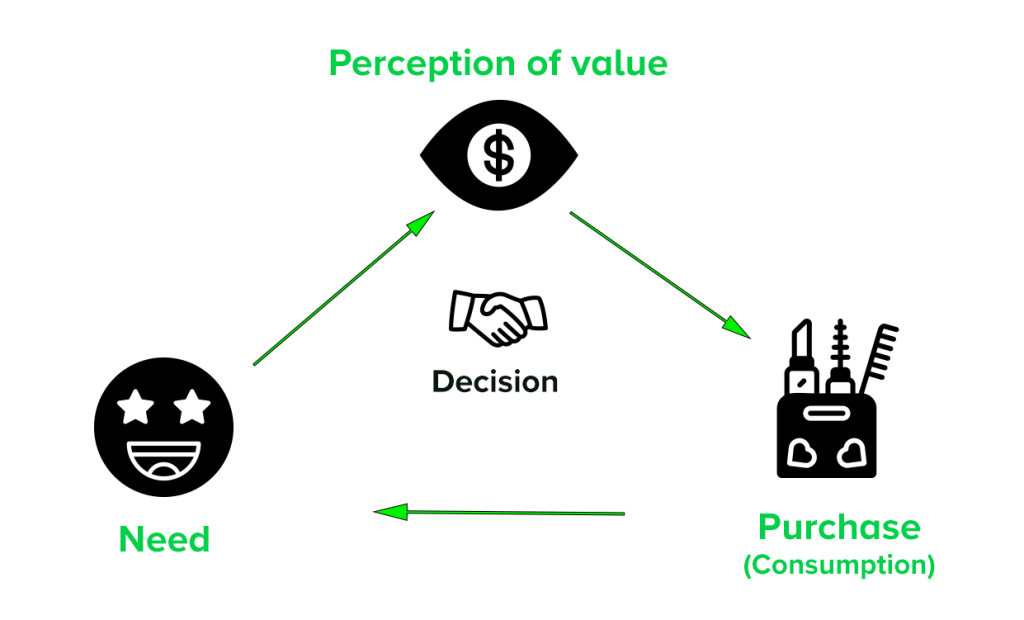
The perception of value is a topic connected strongly to who we are as human beings. How do we perceive worth? What’s valuable and what’s not? Why do we crave some items and others are obsolete for us?
The perception of value changes with generations. What is valuable for us doesn’t really matter to our kids. We are killing each other for money, gold and other precious metals and minerals. And yet… it might be the case that in the future gold will have almost zero value. It all depends on the social agreement (if it comes to higher needs). But to continue we need to outline what is the structure of the needs of the human being.
Needs
In 1943 Maslov wrote a book: A Theory of Human Motivation. In general, our needs have structure and it looks like this
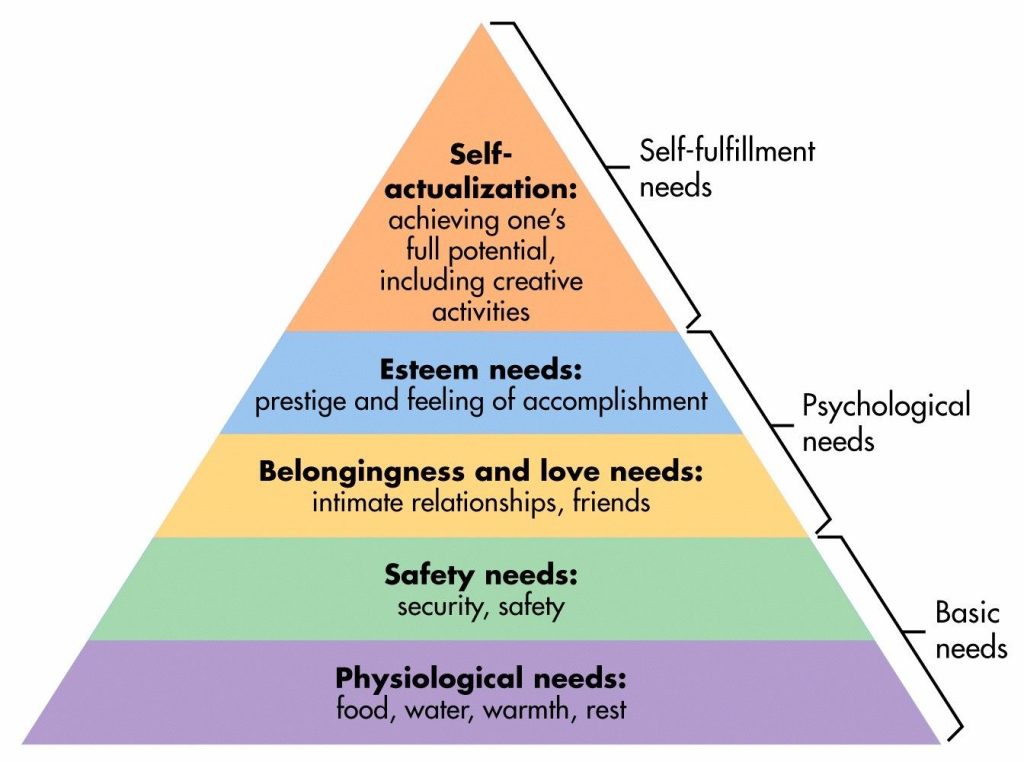
As you can imagine the needs of people in Ukraine drastically landed at the bottom of the pyramid. The higher you go the more abstract and less physiological needs there are. If we want to talk in relation to Metaverse we can only talk about 3 higher levels of this pyramid.
There is still a need to be safe, and have food, water and warmth and none of those can be met in Metaverse.
But the 3 floors of the top of the pyramid of course can.
And virtual goods no matter how good they are and how good the perception of their value it won’t replace our basic need for living. This is obvious.
As Maslov wrote:
“It is quite true that man lives by bread alone — when there is no bread. But what happens to man’s desires when there is plenty of bread and when his belly is chronically filled?
At once other (and “higher”) needs emerge and these, rather than physiological hunger, dominate the organism. And when these in turn are satisfied, again new (and still “higher”) needs emerge and so on. This is what we mean by saying that the basic human needs are organized into a hierarchy of relative prepotency” (Maslow, 1943, p. 375).

Abraham Maslov
A Theory of Human MotivationLet’s get further and let’s fantasize. What will happen if we make a social agreement that virtual goods have value?… Wait they already have, right? Something which does not exist could have more value than a physical item. We tend to look too far and we don’t see what it’s happening as we speak.
Let’s take a look at the chart and put check if it’s true.
Level 3 – Belloning, friends. I think we all agree there is the possibility to make new friends in social networks and games. Of course, we can debate if it’s real friendship, but for sure this need can be fulfilled in Metaverse. Checked
Level 4 – Prestige and feeling of accomplishment. Prestige and feeling of accomplishment – Checked
Level 5 – Self-actualization – Checked
Consumption
We, humans, are consumers. To make it simple: we always tend to have more/better/bigger. And no matter your status is this is the fact. Of course, there are exceptions but in general, our species crave comfort and wellbeing and… more, even more stuff. If someone/something like Meta will convince us that our well-being is dependent on their ecosystem – we will have a shift in our behaviour. It’s nothing else what social media has done in the past. They told us that with easy reach (instant availability) we can share what is important to us with our friends and other people and be rewarded with that with dopamine shots (likes, positive comments, and so on). They teach us to use it on a daily basis, got fed with information we can’t even process and as a result, they created a behaviour shift.
Since producing virtual goods is cheap (reproducibility of goods) – the producer/author of virtual goods can set the price which is independent of its production value and sets its own economy (as producers of games are doing). So if the first true virtual ecosystem will be created it means unlimited possibilities for it’s owner/inventor. So the stakes are high here.
Conclusions
I believe in the future it’s highly probable that the ecosystem of virtual space will be created which will convince us to change our behaviour and there is a high potential that it will replace the computers at some point.
Perception of value is changing toward virtual goods and even if we don’t consider them serious now, they will be in the next 10 years due to gaming, esports and the evolution of technology. Those aspects will be covered in my next article about e-sport. Stay tuned.
All articles on this topic:

